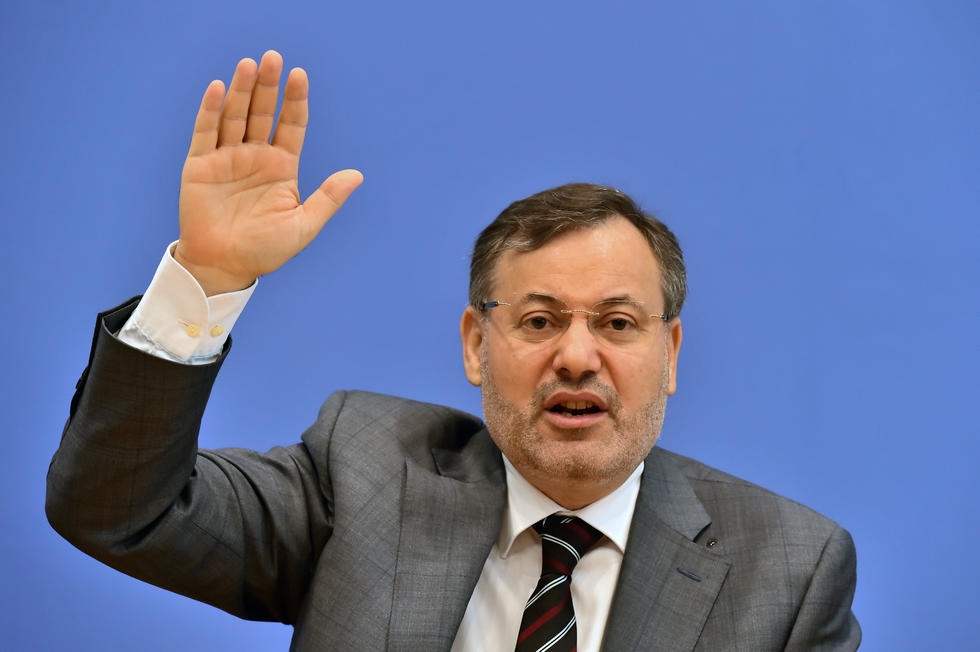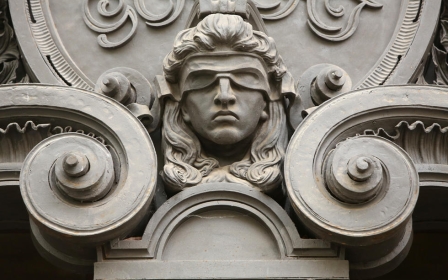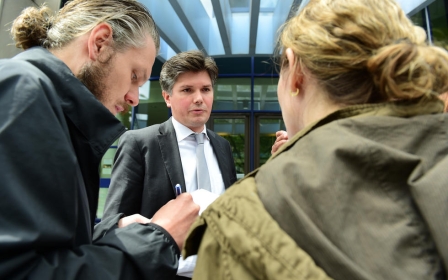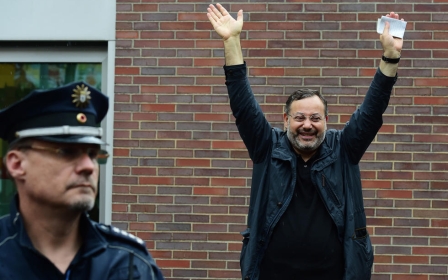Mansour: Egypt targeted Al Jazeera, Qatar with arrest bid

Al Jazeera Arabic journalist Ahmed Mansour said the reason behind his 48-hour detention in Germany was an attempt by the Egyptian authorities to deal a blow to the Doha-based satellite channel and by extension the state of Qatar.
"[The arrest] targeted Al Jazeera. Ahmed Mansour is just a symbol for the channel," he said, referring to himself in the third person.
"The arrest also targeted Qatar, to rub it in their faces that I, as a representative of Al Jazeera, which is regarded as representative of Qatar, is imprisoned."
Mansour, who was released by the German authorities on Monday without being charged, was speaking about his detention experience on his talk show Bela Hudood (Without Borders) to his colleague Fairouz al-Zayani.
"Never in our wildest imagination did we expect global media to stand in support of one journalist wanted by a criminal autocratic regime," Mansour told Zayani, denouncing Egyptian President Abdel Fattah al-Sisi.
"There are Egyptian journalists that are wanted by Sisi outside the country, and there are those journalists inside Egypt that are imprisoned," Mansour said.
Mansour recalled in detail what happened to him from the moment of his arrest to his release two days later.
"I was not told anything. I was arrested by the airport police, who told me that they did not know why I was being detained," he said.
"They had orders to only arrest me, based on an arrest warrant for my name that was issued by the Berlin federal police," he added.
Egyptian authorities tried to issue an international arrest warrant for Mansour in October 2014 through Interpol, but were unsuccessful.
Mansour’s lawyer had previously advised him to carry a document obtained from Interpol with him at all times, since according to his lawyer, he cannot be arrested in any European airport.
"I found out that I was arrested not on Interpol’s request, but directly from by the German authorities," Mansour went on, saying how he immediately called the former Qatari ruler Sheikh Hamed and informed of his situation.
"I told the head of the federal police that I am a political prisoner and should be treated as such, and not as a criminal."
Mansour’s arrest sparked an international outcry, with many accusing Germany of acting on behalf of Egypt’s interests.
On Tuesday, Germany’s interior ministry said that it was "working under extreme pressure to clarify the circumstances of the case".
An investigation carried out by the judicial branch of the German parliament will also be carried out to determine the reason for Mansour’s arrest.
Journalists from Egypt are facing unprecedented repression under Sisi’s government, as reported on by the Centre for the Protection of Journalists (CPJ).
As of 1 June 2015, the government has 18 journalists imprisoned for their work- the highest number in the country since CPJ began collecting data on jailed journalists in 1990.
CPJ reported that back in February, the organisation spoke to high-level officials including the minister of transitional justice and the prosecutor-general, who denied imprisoning journalists for their work.
But further CPJ research found out that Sisi’s government is using "the pretext of national security to crack down on human rights, including press freedom".
Middle East Eye propose une couverture et une analyse indépendantes et incomparables du Moyen-Orient, de l’Afrique du Nord et d’autres régions du monde. Pour en savoir plus sur la reprise de ce contenu et les frais qui s’appliquent, veuillez remplir ce formulaire [en anglais]. Pour en savoir plus sur MEE, cliquez ici [en anglais].




